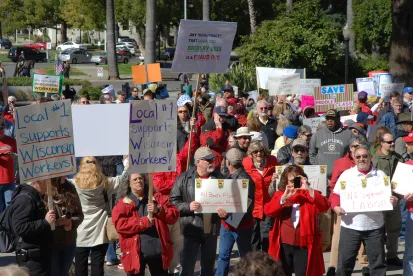Few things – if any – under American labor law are as punitive as what’s known as a “bargaining order” from the National Labor Relations Board (NLRB), and it is exceedingly rare. Nevertheless, a company which flagrantly violates the National Labor Relations Act’s (NLRA) restrictions on employer conduct relative to worker unionization still faces this draconian penalty. This was illustrated by a NLRB case issued last week in which a company was forced to reopen its business, rehire terminated employees, recognize a union, and bargain with it. Ouch.
At issue in the case was a truck repair shop, the owner of which also owned a concrete company. The repair shop had two mechanics on staff. When those mechanics expressed interest in forming a union and filed an election petition with the NLRB for the Teamsters to represent them, they were fired or laid off from the company. The owner then closed the repair shop.
The Teamsters and mechanics filed charges with the NLRB alleging the company’s actions violated labor law. The NLRB agreed. The agency determined that the company discharged the workers and shuttered the repair shop solely based on union animus. That is, it took these actions solely in response to unionization efforts by the employees.
The NLRB found that these actions were so egregious that they warranted significant penalties. It ordered the company to reopen, rehire the mechanics, recognize the Teamsters union (without even having an election), and bargain with them. In the NLRB’s view, the company’s actions were so severe that no fair union election could take place (i.e., employees would be too afraid to vote for a union after being unlawfully terminated), so it issued the dreaded bargaining order.
While in most cases a company is free to shut down even in the face or organizing efforts, the repair shop was found to be a “single employer” with the concrete company and the closure of the repair shop was viewed as an attempt by the owner to deter concrete employees from joining a union. Those were the grounds for the extreme remedy of forcing the repair shop to reopen.
This case is a reminder that very specific rules under the NLRA come into play when employees express interest in forming a union. Employers who misstep in this context can face extraordinary penalties from the NLRB.




 />i
/>i

